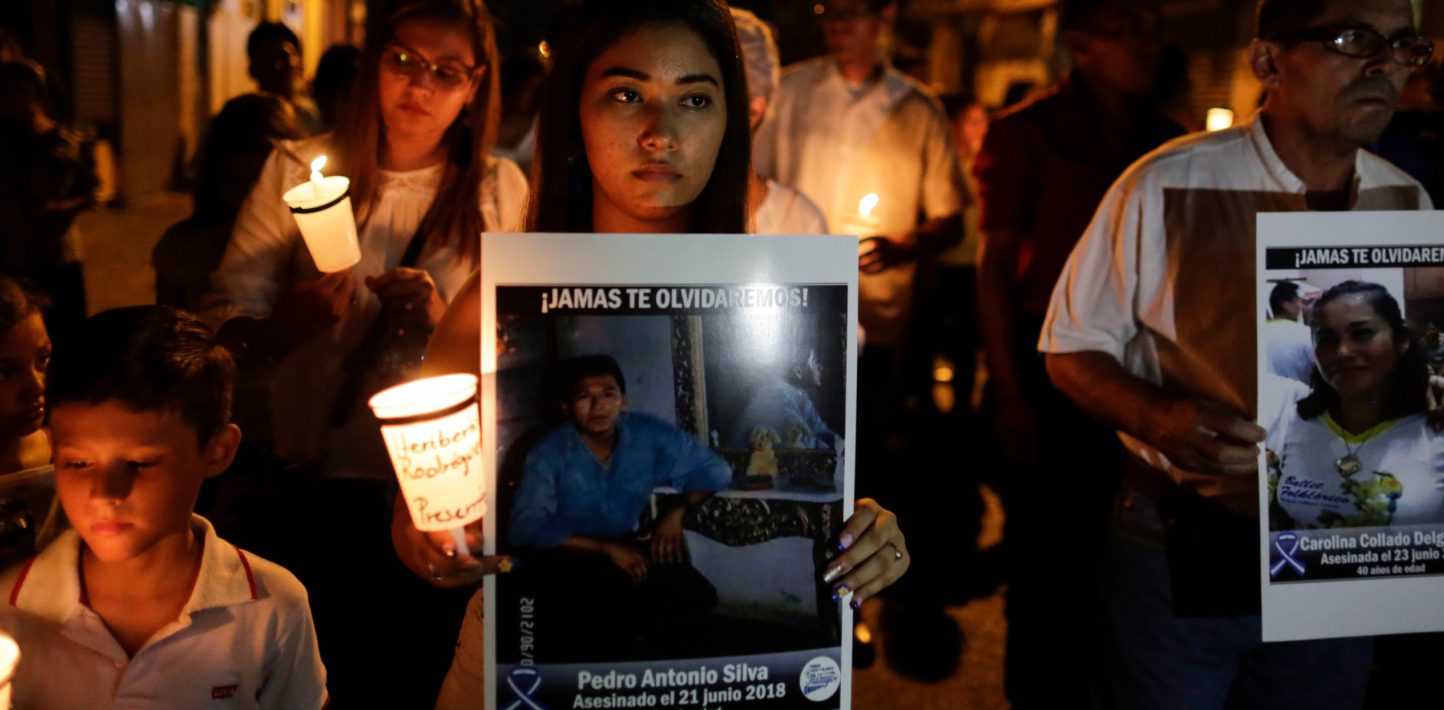Five years on, far from ending its policy of repression to subdue dissenting voices and any kind of criticism, the Nicaraguan government continues to expand and reinvent it and incorporate new patterns of violations, said Amnesty International in a new report today.
A cry for justice: 5 years of oppression and resistance in Nicaragua documents the human rights crisis that the country has experienced since people took to the streets to protest peacefully against reforms to the social security system on 18 April 2018. Brutal repression was the tool that President Daniel Ortega decided to use to control this social discontent, leaving more than 300 people dead, more than 2,000 injured and hundreds arbitrarily detained.
“Through the documentation of emblematic cases, we’ve shown the continuum of repression to which Nicaraguan society has been subjected and the different patterns of human rights violations inflicted on people who dare to raise their voices to denounce the crisis that the country is experiencing and demand respect and full enjoyment of rights in Nicaragua,” said Erika Guevara-Rosas, Americas director at Amnesty International.
The report explains the main tactics – excessive use of force, use of criminal laws to unjustly criminalize activists and dissidents, attacks on civil society and forced exile – that the government of President Daniel Ortega and Vice President Rosario Murillo has used to gradually shut down civic space; to silence human rights defenders, activists, journalists and any dissident voices or voices critical of the government; and to operate without any control or accountability. The implementation of these methods has resulted in a wide range of human rights violations, including arbitrary detention, torture, enforced disappearance, extrajudicial executions and arbitrary deprivation of nationality.
According to information gathered by Amnesty International, police forces have resorted to excessive use of force – often in coordination with pro-government armed groups – and have been responsible for thousands of arbitrary detentions at various times over the past five years. These repressive forces have also been characterized by the use of lethal weapons in contexts not permitted under international law, which has resulted in the deaths of hundreds of people, some of which have already been classified by human rights monitoring bodies as extrajudicial executions, a crime under international law.
Using information provided by Nicaraguan civil society organizations and the direct documentation of cases at different times between 2018 and 2023, Amnesty International has been able to confirm how the judicial system has been co-opted and, in collaboration with other national authorities, has pursued unfair trials of people merely because they were considered critical of the government. In the cases documented in the report, it was verified how the government has used the criminal justice system as a tool of control and repression against people considered dissidents or opponents. This weaponizing of the criminal justice system has led to the imprisonment of hundreds of people just for exercising their right to freedom of peaceful assembly, for denouncing abuses committed by the authorities and for defending and promoting human rights in Nicaragua.
Through the documentation of emblematic cases, we’ve shown the continuum of repression to which Nicaraguan society has been subjected and the different patterns of human rights violations inflicted on people who dare to raise their voices.
Erika Guevara-Rosas, Americas director at Amnesty International
The organization also details acts of harassment and repression that the Nicaraguan government has carried out against human rights organizations and the independent media. Over the past five years, the government has created a series of laws to restrict freedom of association and expression and has subjected human rights organizations and the media to smear campaigns, unlawful interference in their operation and the unjust criminalization of their members.
Among the most frequent methods that the Nicaraguan government has used in its crackdown on these actors have been stripping them of their legal status, raids on their offices and the seizure of their property, severely limiting their ability to carry out their work. In addition, human rights defenders, activists of various kinds and journalists have been subjected to harassment, threats and even attacks on their physical integrity. Many have had to flee the country or have decided to temporarily stop their work out of fear for their safety.
The report also describes how the social and economic instability caused by the relentless repression and the human rights crisis which has engulfed Nicaragua since 2018, has forced thousands of people to leave the country. Amnesty International explains that, in the Nicaraguan case, people who have been forcibly displaced in the last five years must receive international protection.
Finally, the report addresses the arbitrary deprivation of nationality to which more than 300 people have been subjected, many of whom were left stateless, a status that places them in a situation of greater vulnerability and creates serious obstacles to the exercise of other rights such as health, education and decent employment. Given this context, Amnesty International reminds the international community of the shared responsibility to provide protection to these people.
“Five years since it began, the human rights crisis in Nicaragua is perpetuated by the undermining of the rule of law, the approval of changes to the law that have eroded the independence of the judiciary and the closure of the country to scrutiny by human rights oversight mechanisms, both regional and universal,” said Erika Guevara-Rosas.
“Today, more than ever, the international community must continue to act in a coordinated and decisive manner. Not only by recognizing and condemning the systematic nature of the human rights violations being committed under the government of Daniel Ortega and Rosario Murillo, but also in the way in which the rights to justice, truth and reparation are promoted and guaranteed for the thousands of victims the very repressive policy that crushes human rights has claimed – and continues to claim.”


